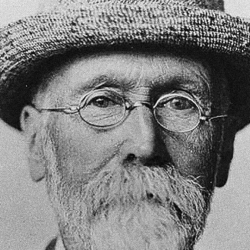Direction, productivity and results are some of the outcomes of strong leadership
But as leaders, how can we provide direction to our teams without it being perceived as overly critical, disrespectful or unkind? Compassion and empathy are widely considered to be positive leadership traits, but do leaders run the risk of being too kind to their teams in a bid to avoid conflict or tension?
A company’s success is strongly influenced by ensuring its teams aren’t just performing but flourishing. The difference is crucial and is defined by your culture and the values and standards by which everyone in your organisation holds themselves accountable. A great culture still needs leadership, but in a bid to lead with kindness, are we doing ourselves and our teams a disservice?
Being a ‘kind leader’ involves understanding what motivates your employees
It includes knowing their aspirations, challenges and what makes them tick. And most importantly, it’s about creating the right support system to help them thrive.
Most managers want to be nice to people, but it’s often a role where friendship and responsibility collide. In fact, a frequently cited study from Harvard Business Review revealed that 44% of managers felt that giving feedback was stressful or difficult. As a result, 21% admitted that they avoid giving negative feedback.
This is natural, but it becomes an issue in the workplace when people don’t know where they might be going wrong, and the effects can be damaging. Individuals can’t improve, and overall performance is impacted. Providing honest feedback isn’t a case of being ‘cruel to be kind’ — it’s where true compassion and kindness in leadership come into play.
Being a ‘people pleaser’ doesn’t make an effective leader. If your goal is to enable your employees to flourish, then kindness and compassion need an environment of Radical Candour, a concept developed by author and tech leader Kim Scott.
A fundamental component of Radical Candour is caring deeply and personally for your co-workers. This isn’t about making the workplace difficult or unnecessarily challenging — but caring enough about people to allow them to succeed. Scott suggests it is about taking the time, energy, and investment to “challenge [those employees] directly”.
Anyone who directly (or indirectly, for that matter) supports another’s success must be as comfortable saying, ‘you did this well’, as they are, ‘that thing you did, didn’t meet the standards we’ve set or aspire to’. It cannot be stressed enough: skimping on constructive feedback hinders everyone’s growth.
As hard as it is, as a leader, you need to find the right balance of compassion and honesty
Being candid as well as caring is a fine art to avoid being seen as rude, blunt or worse. And that brings us back to culture. Ultimately, the clearer your values and expectations, the more likely constructive criticism will be taken in the spirit it was intended, driving the desired positive change.
Added to this is being consistent. Seeing a manager enforce standards for some but not for others will quickly frustrate employees. Maintaining a fair, respectful and professional work environment, and enabling people to know where they stand with you is paramount.
It’s also a two-way thing
The onus is absolutely not just on the ‘leader’ or management team. Both parties must be able to discuss areas that need improvement without getting defensive or taking it personally. The employee must understand that their employer has their best interests at heart.
And in embodying the ‘two-way’ relationship, leaders need to accept and take on board feedback as well. It’s a supportive but honest relationship between employer and employee that saves time wasting or misinterpretation and, ultimately, leads to improvements and a better working environment all round.
Kindness will always be a key trait in a leader, but only when it’s not to the detriment of personality or performance. A dose of radical candour allows for critique of performance, not the person, allowing people and teams to reach their potential in a way that is honest, supportive and kind to all.
Featured image: Brooke Cagle / Unsplash































